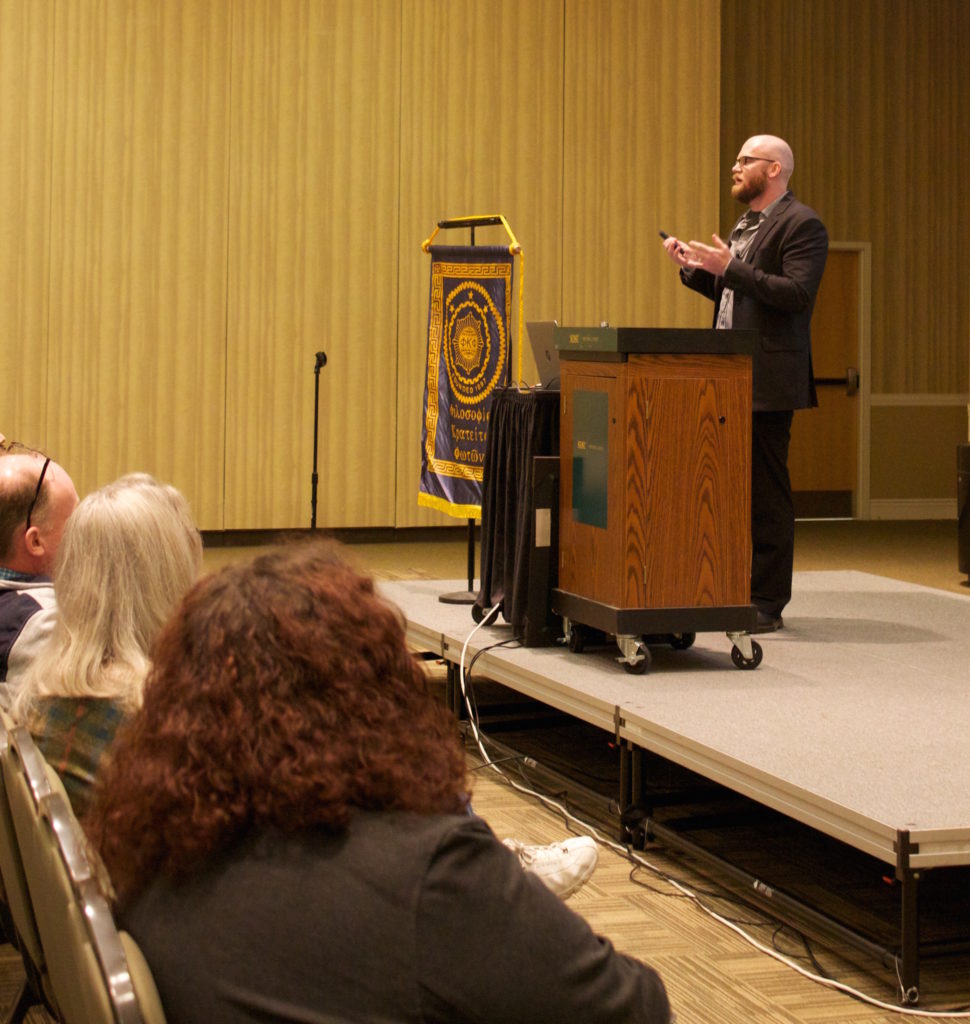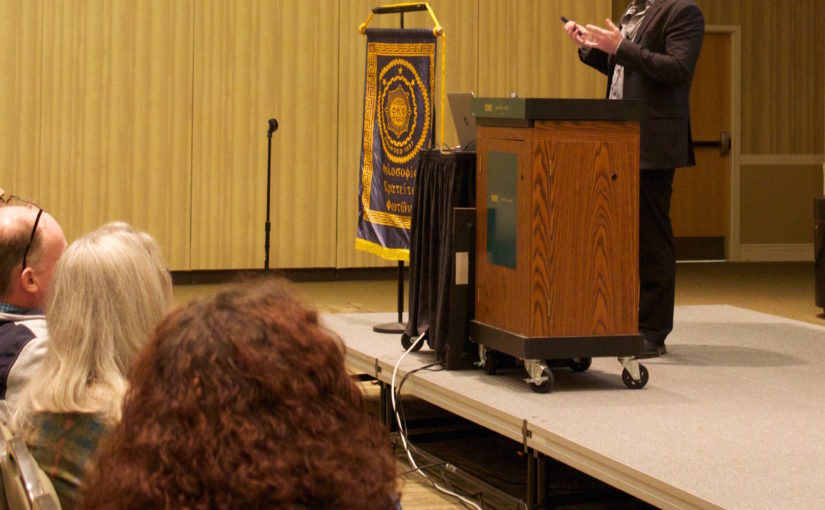
Professor Routledge explains why religion is on the decline.
Clay Routledge, professor of psychology at North Dakota State, gave a lecture on the topic of American religiosity, or rather, the decline of it. The lecture took place Tuesday, Nov. 27 in the Memorial Union Plains room.
Within the lecture, Routledge addressed that, yes, the practice of traditional religion is on the decline in the United States, but that doesn’t mean people aren’t getting spiritual in alternative ways.
While fewer people are practicing traditional forms of religion, like attending religious worship services and drawing on moral justification from an established religion, many, especially millennials, are turning to alternative spiritual practices such as crystals and witchcraft. Rutledge named this the spiritual argument.
Within this argument, it can be seen that, on average, liberals, those leaning left politically, are typically less religious and more spiritual, while the inverse seems to be the case for conservatives, or those who lean right politically. This can also be defined as a form of paranormal belief.
The decline in religiosity isn’t only limited to America; paranormal beliefs are on the rise in secular Europe as well. “People are more likely to believe in aliens than in God,” Routledge said, elaborating that people are beginning to lean toward darker aspects of extreme religion such as exorcisms and noting that more young Canadians believe in Hell than old Canadians.
This would indicate that while religiosity is on the decline, paranormal beliefs and supernatural experiences are on the rise. Routledge noted that people who attend church regularly are half as likely to believe in ghosts than those who do not regularly attend a religious worship service.
But why are people leaving the religion that stuck with their family for generations before them? Routledge said that it’s because “humans reflect on ourselves very highly; other animals can’t do that. We can think about the past and present. We can think abstractly. This gives us existential questions about the nature of existence; we understand our mortality.” This leaves us wondering why we exist while continuing to fight against inevitably ending up in a grave one day.
“People are more likely to believe in aliens than in God,”
– Clay Routledge, professor of psychology at North Dakota State
Religion and spirituality both serve the purpose of attempting to navigate existential problems and motivates us to hold some version of supernatural beliefs, whether it be in an established religion or in crystals. Routledge also noted that those who are uncertain about their religion are more cognitively open to a supernatural belief in an existential crisis.
In essence, the human need for meaning drives people to hold these supernatural beliefs and this is reflected in societies that have experienced a significant need for meaning, such as those that have recently experienced a natural disaster.
What is it about the hypothetical supernatural realm that people find meaning in? Routledge called this the cognitive science of religion. This means that people have two ways to think, rationally and intuitively. The intuitive thought is responsible for more abstract ideas, like searching for meaning, while the rational thought is responsible for problem-solving.
The more social a person becomes, the more religious they become, typically, as a result of this intuitive thought process. This reflects the notion that religious practices activate the social cognition part of the brain.
Whether somebody practices traditional or non-traditional religious or spiritual practices, both reflect this social cognitive process because it largely relies on feelings.
Despite it all, religiosity is correlated with higher meaning in life, perhaps because of the social meaning ingrained behind it.
If people are searching for meaning, why is religiosity on the decline? Routledge said young people are turned off by religion as they see it as being “old people stuff,” and people now have other outlets for social engagement besides going to church every Sunday.
Additionally, as countries become wealthier there is typically a decline seen in religiosity. Routledge associated this with people not searching for meaning because they live a comfortable life, as opposed to asking “why?” regularly when living conditions are poor.
There is also a growing distrust of religious institutions such as the Catholic Church, particularly after a history of child abuse allegations.
People are also beginning to change their starting beliefs, which are passed on by family members, to beliefs they want to believe, taking an interest in religions they may not be familiar with or spiritual practices.
